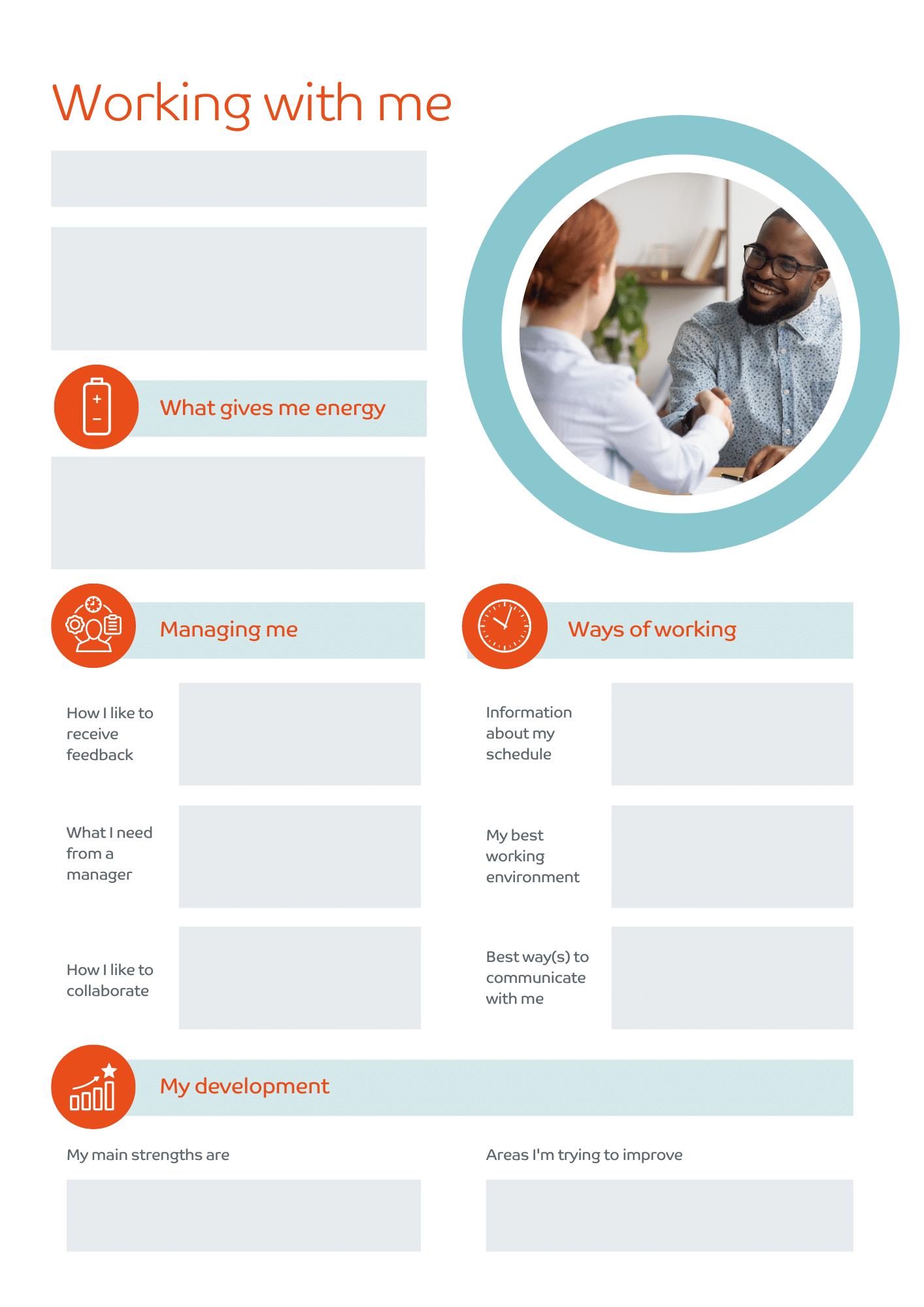Most managers are aware of the expectation to be emotionally supportive and empathetic, as well as supporting professional goals.
It’s crucial for managers to be proactive about discussing employee wellbeing and feel confident opening up those conversations, but this is often a source of anxiety. If this feels like a big change from their usual management style, they can build trust simply by focusing on emotional intelligence, active listening and learning to spot signs of poor mental health.
Download the ‘guide to working with me’
A ‘guide to working with me’ activity helps managers understand their team’s needs, working styles and individual preferences. This can help build trust and connection within the team, especially as a first step for those whose team is reluctant to open up. This short form can be completed by both the manager and their employees, to open the discussion around what support they might need.
Download the confident conversations checklist
This checklist can be shared with managers to help them feel more confident about starting conversations surrounding mental health and wellbeing. It can be used as a framework for the conversation, helping managers to stop worrying about saying the ‘wrong thing’ or nothing at all.The CLERKS checklist
Confidentiality
Offer reassurance that the chat is private and won’t impact performance reviews.
Listening
Ask open-ended questions, practise active listening and give your full attention.
Empathy
Managers don’t need to fix everything – understanding goes a long way.
Role modelling
If managers prioritise their own wellbeing, their team will feel confident to do the same.
Knowing your people
Build trust and familiarity to help spot changes in employees’ behaviour or mood.
Signposting
Managers can help people access support via an EAP, helpline or external resources.

